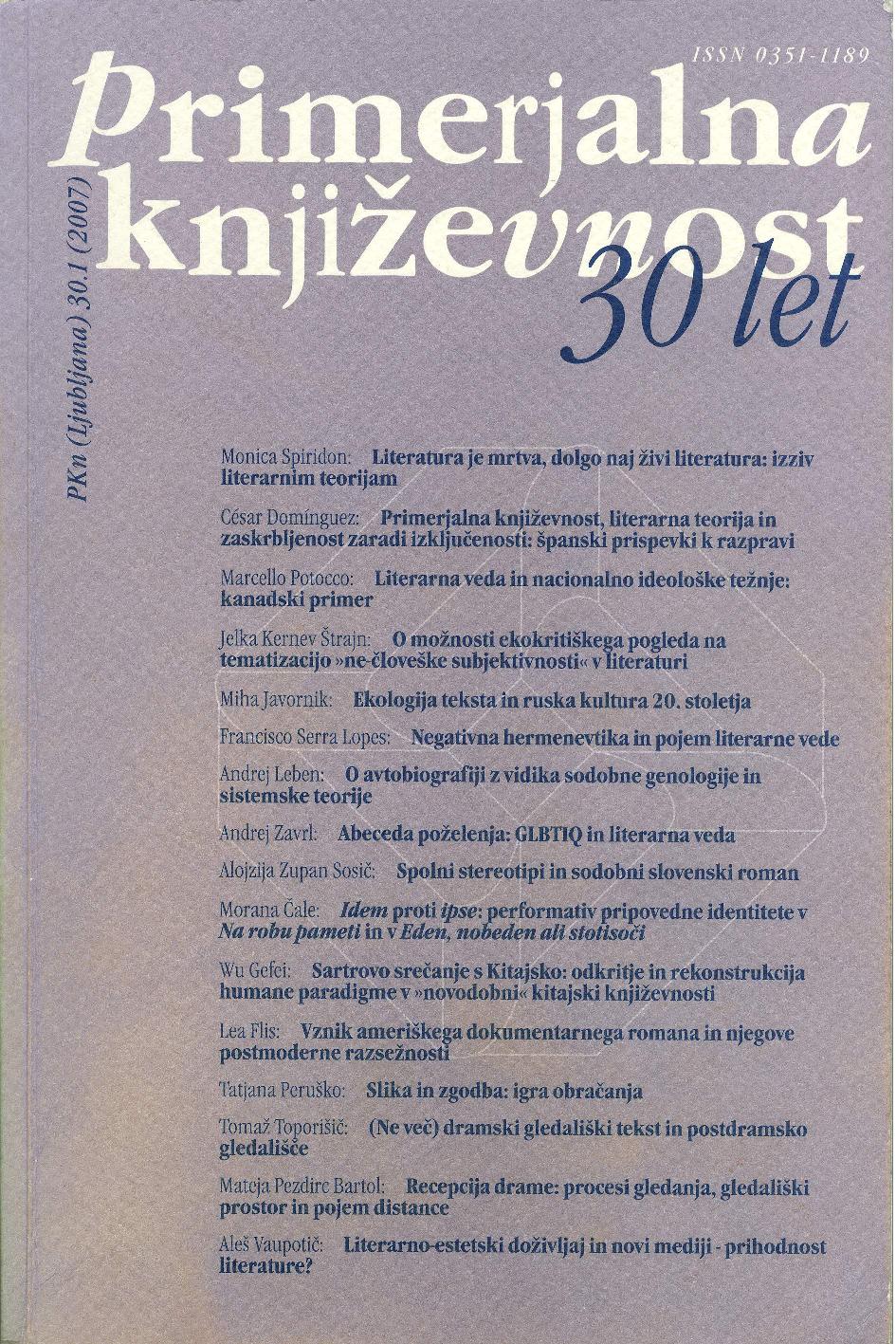Literature Is Dead, Long Live Literature: A Challenge to Literary Theories
Keywords:
literary science, literary criticism, literary discourse, literarityAbstract
This discussion deals with the relationship between two discourse types that have long been considered different, if not even in opposition: literature and theory. Today this relationship is increasingly turned the other way round: increasingly frequent usage of the vocabulary of the hard sciences is typical of modern discourse about literature, whereas the social sciences prefer to resort to imagination and the imaginary potential of literary discourse. This blurring of boundaries – which strives to unite literature and theory, novels, and sociological discourse into one umbrella-genre, and for some kind of great theory in an aesthetic disguise – results in a confusing closeness between literary processes on the one hand, and literary criticism and fictionalized literary theory on the other. This is also demonstrated by author-theoreticians (or better: theoretician-authors) such as Philippe Sollers, Hélène Cixous, and John Barth. In these circumstances, a dangerous and confusing two-way flow of concepts and methods has begun to take place. This was highlighted by the American physicist Alan Sokal’s hoax. In an article with the eccentric title Transgressing the Boundaries: Towards a Transformative Hermeneutics of Quantum Gravity, he allegedly grafted the deconstructive discourse of literary theoreticians onto the field of exact science and, so to speak, “planted” it on trendy literary theoreticians, who effortlessly acted against any discrepancy between the hard sciences and the social studies, on the one hand, and the humanities on the other. Despite the common dimension of these discourses, based upon the self-reflective move of literature itself, the discussion argues for the preservation of differences between them and warns against the danger of the interdisciplinary approach. Paradoxically, this approach would be reductionist because it would cause an oversimplification of both literature and theory. In contrast to theory, literature is not subject to the excluding logics of or-or; instead, in its commitment to the principle of just as …, it always remains open to the multiplicity of alternative worlds inapplicable to only a single universe of meaning.References
Bernheimer, Charles, ur. Comparative Literature in the Age of Multiculturalism. Baltimore in London: The Johns Hopkins UP, 1995.
Bruss, Elisabeth. Beautiful Theories. The Spectacle of Discourse in Contemporary Criticism. Baltimore in London: The Johns Hopkins UP, 1882.
Currie, Mark, ur. Metafiction. London in New York: Longman, 1995.
Dallenbach, Lucien. Le recit speculaire. Essai sur la mise en abyme. Pariz: Seuil, 1977.
Hjort, Mette, ur. Rules and Conventions. Literature, Philosophy, Social Theory. Baltimore in London: The Johns Hopkins UP, 1992.
Hutcheon, Linda. Narcissistic Narrative. The Metafictional Paradox. New York in London: Methuen, 1984.
Kundera, Milan. The Art of the Novel. Prev. Linda Asher. New York: Harper and Row, 1988. [Umetnost romana. Prev. Jaroslav Skrušny. Ljubljana: Slovenska matica, Partizanska knjiga, 1988].
Nemoianu, Virgil. A Theory of the Secondary. Literature, Progress and Reaction. Baltimore in London: The Johns Hopkins UP, 1989.
Pavel, Thomas. G. Fictional Worlds. Cambridge, Mass. in London: Harvard UP, 1986.
Perloff, Marjorie. »Literature in the Expanded Field.« Comparative Literature in the Age of Multiculturalism. Ur. Charles Bernheimer. 1995. 175–187.
Rifaterre, Michael. Semiotics of Poetry. Bloomington: Indiana UP, 1978.
Rorty, Richard. »Heidegger, Kundera and Dickens.« Essays on Heidegger and Others. Philosopical Papers. 2. Cambridge, Mass.: Cambridge UP, 1991. 64–76.
Sokal, Alan. D. »A Physicist Experiments with Cultural Studies.« Lingua Franca. Maj/junij (1996): 62–64.
– – –. Jean Bricmont. Impostures intellectuelles. Pariz: Editions Odile Jacob, 1997.
– – –. »Transgressing the Boundaries. Towards a Transformative Hermeneutics of Quantum Gravity.« Social Text. Pomlad/poletje (1996): 217–252
Wihl, Gary. »Novels as Theories in a Liberal Society.« Constructive Criticism. The Human Sciences in the Age of Theory. Ur. Martin Kreiswith in Thomas Carmichael. Toronto, Bufallo in London: Toronto UP, 1995. 100–113.


